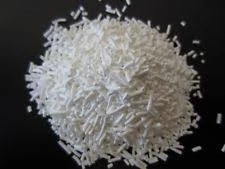
Exploring the Impact of Flavor Enhancers on Culinary Experiences and Taste Profiles
Exploring the World of Flavor Additives Enhancing Culinary Experiences
Flavor additives are an essential component of modern cuisine, playing a pivotal role in the food industry. They are substances used to enhance, modify, or impart flavors to food and beverages, making them more appealing and enjoyable to consumers. These additives can be natural or synthetic and are utilized across a wide array of products, from snacks and sauces to desserts and beverages. Understanding the different types of flavor additives and their applications can help consumers make informed choices about the foods they consume.
Types of Flavor Additives
Flavor additives can be broadly categorized into three primary groups natural flavors, artificial flavors, and flavor enhancers
.1. Natural Flavors These are derived from natural sources such as fruits, vegetables, herbs, and spices. They are extracted through processes like distillation or solvent extraction. Natural flavors are often preferred by consumers seeking a more authentic taste experience. For example, vanilla extract is a natural flavor derived from vanilla beans and is widely used in baking and dessert recipes.
2. Artificial Flavors These are chemically synthesized compounds that mimic the taste and aroma of natural flavors. Artificial flavors are often more cost-effective and have a longer shelf life compared to their natural counterparts. Common examples include ethyl vanillin, which is used as a substitute for vanilla flavoring. While some consumers are skeptical about artificial flavors, they are meticulously regulated to ensure safety for consumption.
3. Flavor Enhancers These additives do not impart a specific flavor themselves but enhance the existing flavors in food. Monosodium glutamate (MSG) is one of the most well-known flavor enhancers, commonly used in savory dishes to intensify the umami taste. Flavor enhancers can significantly elevate the perception of flavor in a dish, making it more satisfying.
flavour additives

The Role of Flavor Additives in Food Industry
In the fast-paced food industry, flavor additives are crucial for product differentiation and consumer appeal. With the ever-growing demand for convenient and ready-to-eat meals, flavor additives help manufacturers create consistent taste profiles that meet consumer expectations. For instance, a brand of potato chips may use specific flavor additives to ensure that every bag has the same tangy or spicy flavor, regardless of batch variations.
Moreover, flavor additives are instrumental in product innovation. Food scientists continuously explore ways to incorporate new flavors that align with consumer trends. Whether it’s developing plant-based meat alternatives that mimic the taste of beef or creating unique flavor profiles for beverages, flavor additives allow companies to experiment and bring exciting new products to market.
Health Considerations
While flavor additives contribute significantly to enhancing the culinary experience, there are health considerations to be aware of. Some individuals may have sensitivities or allergies to certain additives, and excessive consumption of artificial flavors and enhancers has raised concerns among health professionals. Regulatory bodies, such as the FDA, monitor the use of these additives to ensure they meet safety standards. Consumers are encouraged to read ingredient labels and stay informed about the components in their food.
Conclusion
Flavor additives are a fascinating aspect of the food industry that continues to evolve. They play a crucial role in enhancing flavor, driving product innovation, and meeting consumer demands for taste and convenience. Whether you are enjoying a delicious snack, a flavorful sauce, or a refreshing beverage, flavor additives are often at work behind the scenes, making your culinary experience more enjoyable. As consumers become increasingly health-conscious and adventurous in their food choices, the demand for both natural and innovative flavor additives is expected to grow, shaping the future of the culinary landscape.
-
Aluminum Hydroxide: Quality Gels & Dried Gel AntacidNewsAug.31,2025
-
Buy High-Quality Trichloroisocyanuric Acid for Sale | TCCA 90% SupplierNewsAug.30,2025
-
Pure Sodium Dichloroisocyanurate Dihydrate | Powerful DisinfectantNewsAug.29,2025
-
Industrial Chemicals: Quality & Purity for Every IndustryNewsAug.28,2025
-
Nitrile Rubber Honoring Strict Production StandardsNewsAug.22,2025
-
Aspartame Ingredients Honoring Food Safety ValuesNewsAug.22,2025
-
Fertilizer for Balanced Plant NutritionNewsAug.22,2025
Hebei Tenger Chemical Technology Co., Ltd. focuses on the chemical industry and is committed to the export service of chemical raw materials.
-

view more DiethanolisopropanolamineIn the ever-growing field of chemical solutions, diethanolisopropanolamine (DEIPA) stands out as a versatile and important compound. Due to its unique chemical structure and properties, DEIPA is of interest to various industries including construction, personal care, and agriculture. -

view more TriisopropanolamineTriisopropanolamine (TIPA) alkanol amine substance, is a kind of alcohol amine compound with amino and alcohol hydroxyl, and because of its molecules contains both amino and hydroxyl. -

view more Tetramethyl Thiuram DisulfideTetramethyl thiuram disulfide, also known as TMTD, is a white to light-yellow powder with a distinct sulfur-like odor. It is soluble in organic solvents such as benzene, acetone, and ethyl acetate, making it highly versatile for use in different formulations. TMTD is known for its excellent vulcanization acceleration properties, which makes it a key ingredient in the production of rubber products. Additionally, it acts as an effective fungicide and bactericide, making it valuable in agricultural applications. Its high purity and stability ensure consistent performance, making it a preferred choice for manufacturers across various industries.





